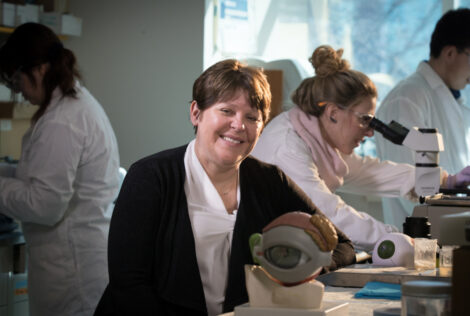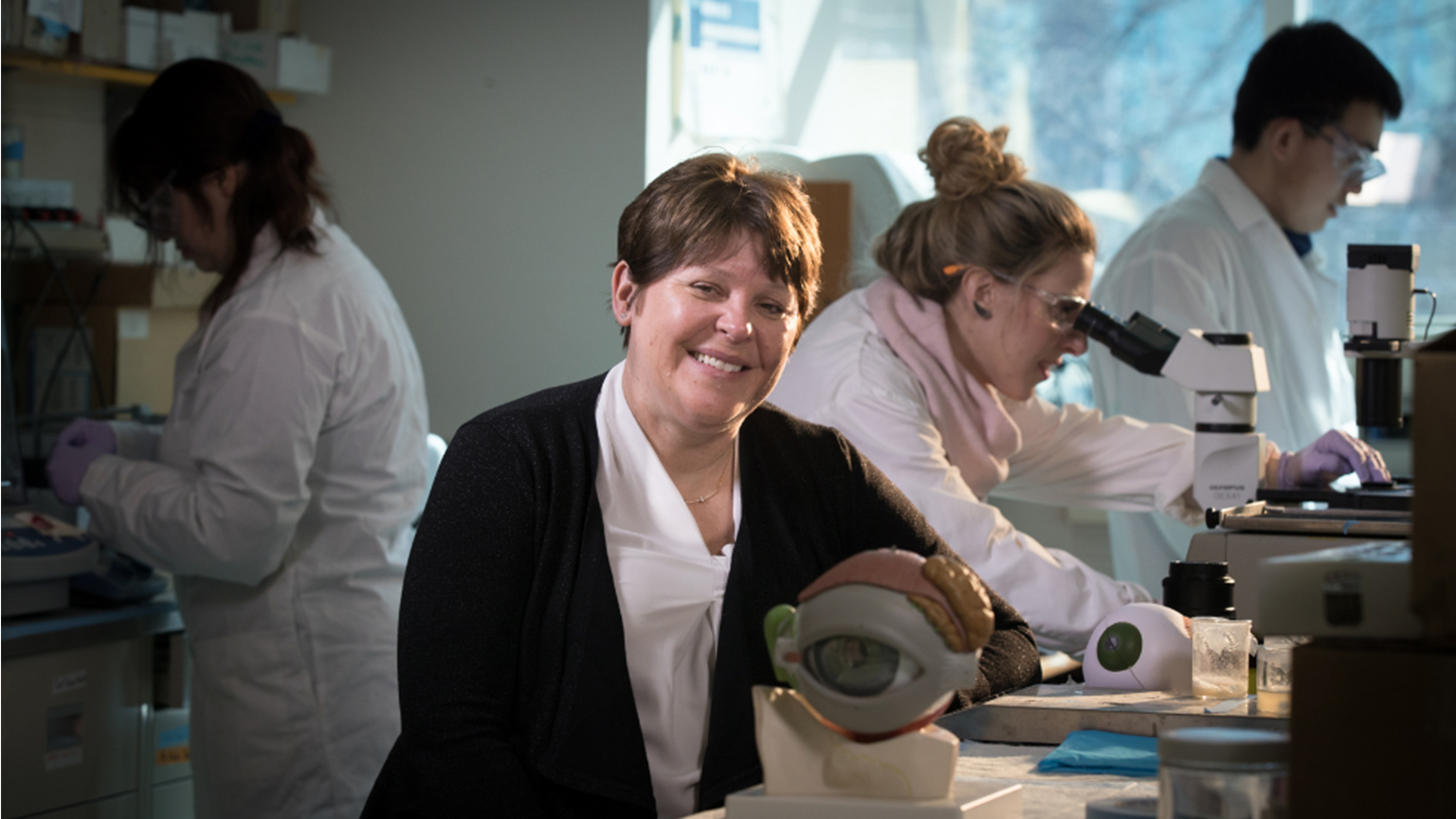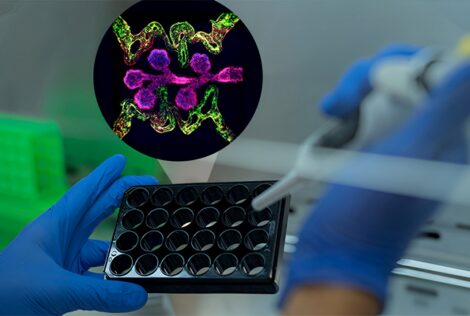

McMaster engineers will further advance drug delivery options for patients with glaucoma and beyond, thanks to a partnership with Ripple Therapeutics and a recent grant from the Natural Sciences and Engineering Research Council (NSERC).
The Sheardown Lab, led by Heather Sheardown, Tier 1 Canada Research Chair in Ophthalmic Biomaterials and a professor of Chemical Engineering at McMaster, receives just over $500,000 in funding from NSERC’s Alliance Grant and Ripple Therapeutics to build on a previous collaboration and develop new technologies for treating vision disorders.
The Epidel drug delivery technology, developed by Toronto-based Ripple Therapeutics and validated by the Sheardown Lab, is based on a discovery that drugs can be engineered into controlled release pharmaceuticals without polymers or excipients.
This means the molecules that carry the drug to the eye – typically polymers – are made of the drug itself so nothing gets left behind once the drug is released. This reduces the amount of medication and monitoring needed, especially for patients with chronic eye conditions, improving treatment and quality of life for patients.
“It’s a fundamental discovery on how to deliver drugs in a completely different way,” says Wendy Naimark, Chief Technology Officer, Ripple Therapeutics. “We have taken the polymer out of the equation by, for example, covalently linking two drug molecules resulting in a mechanism for precise and sustained controlled drug delivery.”
Sheardown and her team have been critical in validating studies that demonstrate drug release properties and safety with Ripple’s first product, which was designed for the treatment of diabetic macular edema and retinal vein occlusion.
The lab’s data have contributed to Ripple signing a $14.8M licensing agreement for the rights of the product in North America and Europe with Théa Open Innovation (TOI), a wholly owned subsidiary of Laboratoires Théa, the leading independent ophthalmology pharmaceutical company in Europe.
“We are thrilled to continue our work with the scientists and engineers at Ripple Therapeutics, building on a highly productive collaboration that has resulted in a product currently in clinical trials,” says Sheardown, who is also the scientific director of the C20/20 Innovation Hub, a research centre stemming from the 20/20 NSERC Ophthalmic Materials Network.
With the new grant, the teams will test how Ripple’s carrier system can be applied to controlling the release of other drugs, including ones used to treat glaucoma, while supporting Ripple’s product development pipeline.
In the year ahead, the teams will build a “suite” of potential delivery systems for various ocular conditions that will be validated for release, safety and toxicity.
“This work is an example of how an academic-industry partnership can lead to new and better solutions to help millions of patients in Canada and internationally,” says Fran Lasowski, C20/20’s executive director. “We hope this will continue to build on the success of C20/20 and its work on the preclinical validation of various ophthalmic technologies, opening more doors to collaborations with companies in this industry.”
The Sheardown Lab focuses on vision health, with expertise in contact lenses, targeted drug delivery, preclinical modeling and polymer chemistry, with an emphasis on commercialization.
Learn more about The Sheardown Lab
Hear an in-depth conversation with Heather Sheardown and Fran Lasowski on the future of drug delivery for the eye, and how it could even have potential applications for medications to treat COVID-19.


